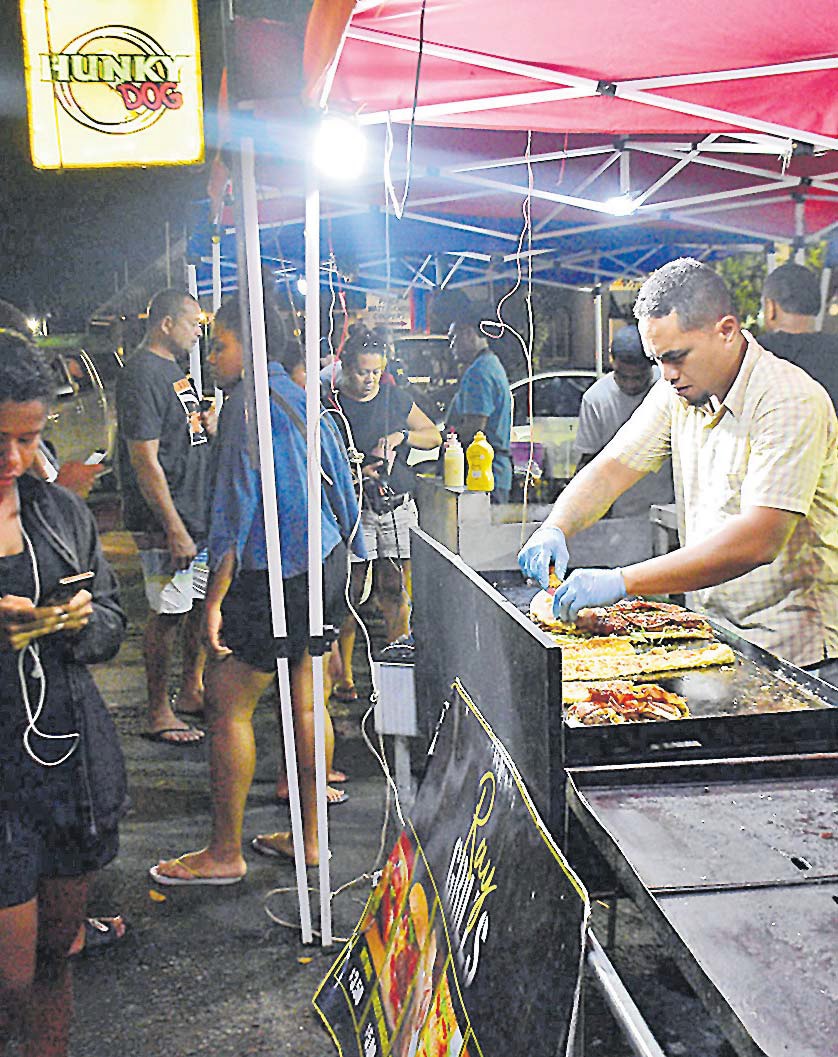BE careful of what you eat my mother would caution me as a child whenever I go out of the house or return with food in my hand.
She preferred I eat at home and not entertain myself at the luxury of someone’s dining table – supposedly over that age-old belief that food could cause someone ill – more black magic than bacteria germs infection.
It’s a superstitious belief to some, but ardently common in Fiji particularly at villages – a belief that food eaten elsewhere could be tampered with intentionally to cause harm to others.
I imagined roadside food stalls would have been the devil to some back in the day when the superstition was rife. But like many beliefs and ‘way of life’ of the past, changes in society brings about a new norm.
Nowadays roadside food stalls are striving businesses in the urban centres – more than before, considering the post-COVID-19 rendering unemployment, reduced hours and pay-cuts nationwide. So once so-called ‘devil’ has turned God amid these trying times.
However, I do believe COVID-19 is not the only cause for a surge in food stalls, but a wave of new street foods hitting the market.
And ‘hawkers licence’ made it easier to access for those new entrepreneurs.
Suva’s famous foreshore location echoes tasty burgers, teriyaki fry-chicken, subways and more. Not only is food prepared in front of you, but it’s served nice and hot.
Fish and chips was a luxury for me a child. It was the only dish I’d anxiously look forward to at any restaurant.
Barbecue stalls were commonly erected during the Hibiscus Festivals or a tournament at the National Stadium in the early ‘90s.
Back then, considerable serve on paper plates traditionally at public venues hosting extraordinary crowds of people, nowadays it’s purely business at any available street corner or outside the front porch.
Some prominent barbecue locations are in dire need of a good scrub or water-blast, but don’t get me wrong – the food is very tasty and equal effort should be given to cleaning locations afterwards or on free days.
So in light of glorious food which the big city entices I hope this article puts emphasis on hygiene and maintain the standards according to the Food Safety Act 2003.
Social media is the new platform for feedbacks both good and bad. So businesses could easily be crippled overnight on negative feedbacks such as in 2010 when authorities shutdown food stalls at the Suva market amid allegations of food poisoning.
The sale of ready-made authentic seafood was in question and revised stringent provisions adopted to hit hard at lawbreakers.
This brings to point the seriousness on the part of small food businesses. In fact, the whole reason why the world is in turmoil and Fiji is at war with the coronavirus is associated with the buying and selling of foods at the wet market in Wuhan.
I’ve been a victim on two separate occasions this year.
I bought stale food served to me and my family.
The first occasion happened at a prominent food court at the heart of Suva. I chose food from the display rack for my son and me, only to find out at home the food was stale – probably reheated from the days before.
The other was at a new food establishment that had me wait 15 minutes while they prepared a vegetarian combo takeaway. The salads were indeed fresh except for a ‘dhal fritter’ and vegetarian mayo sauce – both tasted sourly off.
I hope cutting cost was not the issue here.
In such encounters, I make an effort to give the owners feedback so as not to tarnish their dream business and make them aware of their product. But in a worse case pest infestation the Suva City Council plays a big role.
Despite my sad two encounters, the council says the standard of quality food at local eateries has risen from what it used to be.



